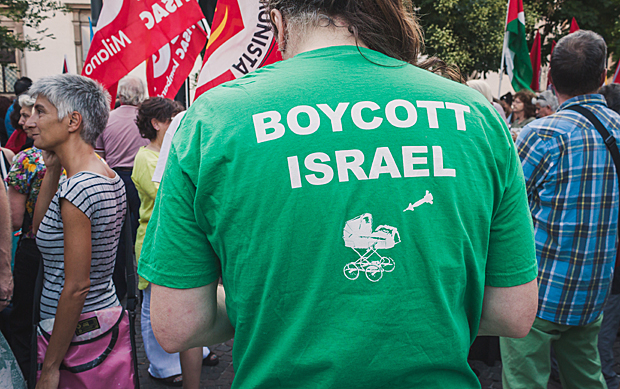18 Aug 14 | News and features, Poland, Religion and Culture
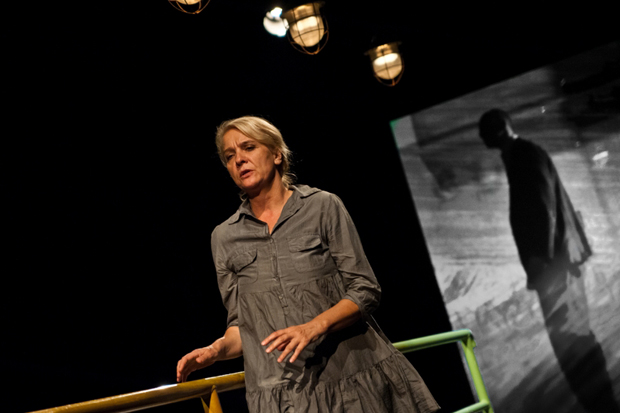
Ewa Wojciak has been working in the in theatre since the 1970s when she was a dissident artist under the communist regime. (Photo: Maciej Zakrzewski)
Ewa Wojciak, director of Poland’s Theatre of the Eighth Day, was fired by Poznan mayor Ryszard Grobelny on 28 July. His administration oversees culture and arts in the city, including Wojciak’s subversive and anti-establishment theatre group.
The official reason given was that she did not ask for permission to leave the city between 18 and 28 February, when she visited Yale and Princeton universities, performing her touring duties as director and actress with the theatre. However, these trips were not sponsored by the local government, so it is hard to see why she would need permission from authorities.
Wojciak’s career with the theatre began in 1970 when she was a dissident artist under the communist regime. After the end of communism, she turned the theatre into a welcoming space for refugees, minorities, anti-facists, feminists, lesbian, gay, bisexual, and transgender people and emerging theatre-makers. She has become a “new dissident”, confronting the realities of life after communism. During her tenure, the theatre, known for its artistic experimentation and politically subversive productions, has drawn the fire of Grobelny, known for his ultraconservative views.
The Theatre of the Eighth Day has played at the Edinburgh Festival, London’s LIFT, at the universities of Yale and Princeton, as well as innumerable major and small venues in Poland. The New York Times has written on their production under the heading “When Courageous Artists Ripped Holes in the Iron Curtain“.
During last month’s Index on Censorship debate with Timothy Garton Ash, Kate Maltby and David Edgar, about freedom 25 years after the fall of the Berlin Wall, I tried to emphasise how important such new dissidents are in Eastern Europe. Commenting on this debate, Index CEO Jodie Ginsberg reminded us how authorities are taking an increasingly hard line on civil society groups.
The Theatre of the Eighth Day, which helped build an alternative civil society under communism, continues its non-conformity — and faces threats from Poznan’s political establishment. Wojciak is being unfairly dismissed for defying the far right, clericalism, the “moral majority” and censorship.
Grobelny’s record as mayor of Poznan, a job he has held since 1998, leaves much to be desired in an open, democratic society. He has repeatedly stifled independent voices in the city, and Wojciak has been a long-standing adversary. In 2005, Grobelny banned the Equality March, a feminist-queer pride event. Wojciak and other members of the Theatre of the Eighth Day took part in this forbidden event, which was suppressed by the police — one of the actors was arrested. More recently, Grobelny also supported the Poznan ban of the play Golgota Picnic, on which Index has reported.
In 2013 Wojciak was reprimanded by the mayor for a comment on her Facebook wall immediately after the conclave of Pope Francis: “[T]hey’ve elected a prick who denounced left-wing priests under the military dictatorship in Argentina.” Her Facebook account was shut down and Wojciak — mistaken about the Pope’s involvement with the Argentinian junta — was vilified by Poland’s far right. Her Facebook account was later restored and the Poznan prosecutor declined to pursue the matter. At the time, intellectuals and artists defended her on grounds of free expression.
Adam Michnik, editor-in-chief of Poland’s leading broadsheet Gazeta Wyborcza and a legendary dissident, wrote that he supports Wojciak. Michnik is a member of the committee of the fiftieth anniversary of the Theatre of the Eighth Day. A petition protesting the dismissal of Wojciak has been issued by civic-educational initiative Otwarta Akademia (“Open Academy”), spearheaded by Piotr Piotrowski, an art historian and former director of Warsaw’s National Museum (who initiated the groundbreaking exhibition Ars Homo Erotica there), feminist Izabela Kowalczyk, artist Marek Wasilewski and ethicist Roman Kubicki, among others.
This petition has so far been signed by 317 people, including Irena Grudzinska-Gross of Princeton University and Alina Cala of the Jewish Historical Institute in Warsaw, who both write on anti-semitism in Poland; Elzbieta Matynia of the New School for Social Research and author of Performative Democracy; Jeffrey C. Goldfarb, author of The Persistence of Freedom: The Sociological Implications of Polish Student Theatre; and Pawel Leszkowicz of Poznan University, curator of Ars Homo Erotica.
The Theatre of the Eighth Day epitomises liberty: Wojciak and her company speak out against injustices and experiment aesthetically. It’s deplorable that they should be repressed by the authorities of their city.
If you would like to protest the dismissal of Ewa Wojciak, please email [email protected] with the subject “Ewa”.
This article was posted on August 18, 2014 at indexoncensorship.org
15 Aug 14 | Europe and Central Asia, News and features, Turkey
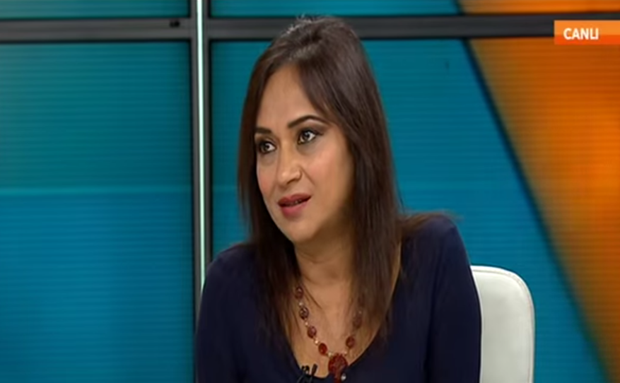
Amberin Zaman during a TV appearance (Image: serm canker/YouTube)
“A militant in the guise of a journalist, a shameless woman.” “Know your place.” “[Y]ou insult at a society of 99 percent Muslims.”
The comments from Recep Tayyip Erdogan — Turkey’s newly elected president and outgoing prime minister — were heard across the world. While he did not mention a name, it was the clear the woman in question was Amberin Zaman, a journalist for The Economist and Taraf. Erdogan’s tirade came during a campaign rally last Thursday in the city of Malatya, ahead of Sunday’s presidential vote. Zaman had expressed opinions critical of Erdogan during a TV discussion the night before.
Erdogan continued during a rally in Ankara on Saturday, calling her a “despicable woman” and saying she had insulted Islam. She has also been targeted online by Erdogan supporters, in what the Organisation for Security and Cooperation in Europe (OSCE) has labelled a “widespread smear campaign“.
“The pro-Erdogan camp emboldened by his very public insults against me continue to mob lynch me via the social media,” Zaman told Index on Censorship. “My Twitter feed is flooded with threats and profanities. Being called an enemy of Islam in a Muslim country, when radical groups like IS have Turkish members who are active Twitter users, puts me at physical risk and hobbles my work.”
She says she was unable conduct interviews on the streets on election day, “for fear of being recognised and attacked”.
This is not the first time Zaman has been targeted for speaking out against Turkish authorities. She was fired last year from Haberturk over articles critical of the government, and she was also one of the journalists reportedly wiretapped with the approval of Erdogan. As she said at a recent Index event on digital freedom, she is attacked online daily by pro-government trolls.
But Zaman is not the only member of the Turkish media under threat. According to recent figures there are 40 journalists behind bars in the country, making it one of the world’s worst jailers of press. Since 1992, 14 journalists have been murdered with impunity. Turkey stands at 154th out of 180 countries in the latest Reporters Without Borders Press Freedom Index, and its ranking has deteriorating over the past years.
In addition to Zaman’s case, there have been a number of other attacks on press freedom just over the past few days, as reported by the Index media mapping tool among others. Enis Berberoglu, editor-in-chief of Hurriyet, resigned on 8 August. The paper has denied that it was as a result of political pressure. However, in his attacks on Zaman during the Malatya rally, Erdogan specifically mentioned the owners of the TV channel she was on, Dogan Holding. Hurriyet is also owned by Dogan.
“The consensus is that he was pushed out but his departure coincided with the elections so it didn’t get the attention it deserved. But it is a further sign that media bosses will continue to cave in to power. It’s a tragic comment on the state of the Turkish media,” says Zaman.
The same day as Berberoglu’s resignation, investigative journalist Mehmet Baransu was beaten by police. The day after he was detained for tweeting about the incident, and about the Istanbul public prosecutor. There have also been reports that the Cihan news agency was restricted from covering the presidential election, with police ordered to keep journalists out of polling sites across the country.
The election also put the spotlight on issues surrounding biased media coverage in favour of Erdogan; something that was highlighted by observers after the vote. Zaman says it is difficult to measure the impact of the poor state of media freedom on the election and its outcome — Erdogan won comfortably after one round. But it was not, she says, “a level playing field”.
“Erdogan has indirect control over a broad swathe of media outlets, most crucially of television. So the opposition candidates received scant coverage, and the little they got in pro-government was more of a smear campaign to which they were unable to effectively respond. Intimidation of the media and of media bosses has created an environment of self-censorship where journalists fear losing their jobs,” she explains.
“Even the mildest criticism is no longer tolerated. It’s stifling.”
Despite the attacks from Erdogan and his supporters, Zaman says she is “very heartened by the thousands of messages of support I have received, including from pious Muslims”.
The Women’s Equality Monitoring Group, whose membership includes female journalists, academics and writers has called on Erdogan to apologise.
“Making a female journalist a target by calling her shameless for simply performing her job was the last link in a chain of sexist stances,” they said. “This attack was also an attempt to silence the few remaining critical voices in the media, which has been silenced with bribery, censorship and self-censorship.” The Economist have stated that they “stand firmly” by Zaman.
“I am not alone,” she said.
But as Erdogan has indicated intention to expand the powers of the presidency, Zaman is not optimistic about the future.
“Should he continue to run the government as he announced he would it is horrible news for journalists. Things can only get worse not better.”
This article was posted on August 15, 2014 at indexoncensorship.org
14 Aug 14 | News and features, United Kingdom
Top flight football is back! Back! BACK! After an agonising entire month since the World Cup Final with nothing to sustain people but the made-up soccer tournaments designed to draw American crowds, and the Commonwealth Games, and the England India cricket tests, the people of Britain can relax, and fall trustingly into the loving arms of the Premiership.
Once more, it will be deemed legitimate to spend Saturday afternoons in a pub, watching other men watching football; once more we can spend Saturday nights complaining about Mark Lawrenson and Alan Shearer’s dull observations on Match of the Day; once more Arsenal will be a little disappointing.
I say “once more” but of course the football never really ends, it just sleeps for a few weeks every year. But now it is awake.
At this point, fans of leagues that are not the premiership will be pointing out that their leagues started last weekend, and they’re right.
And what was the main story from the (non-Premiership) Football League this week? The news that Millwall fans had upset their Leeds United rivals with a new chants about serial sexual abuser Jimmy Savile, a Leeds native. Not to exactly repeat it, but the chant essentially suggested that Leeds fans may be the offspring of Savile.
Milwall’s manager Ian Holloway criticised his own fans, saying: “Let’s stop and think about what [Savile] has actually done. That’s the most important thing and we don’t see that. ‘Oh, it is a bit of banter’. It isn’t funny, is it? I don’t think so.”
Now clearly, some Millwall fans did find this funny. Or they found the idea of offending Leeds fans funny. Because offending the opposition has for a long time, been part of going to football.
My home team, Cork City, who play in Ireland’s Airtricity League, have a pretty good relationship with Derry City. Derry, despite being based in Northern Ireland, play in the Republic’s league. Their fans are mostly nationalist rather than Unionist, and they are a widely respected group , admired for travelling long distances in large numbers to support their team, and making a lot of noise when they get there.
In spite of all this admiration, Cork fans greet Derry fans, who have literally travelled the length of the country, with the chant “What’s it like to have a Queen?” a dig at the fact that Derry fans live in the United Kingdom whether they like it or not.
It’s certainly calculated to offend, but that is the point of that much-vilified concept, “banter”. It’s part of the contest, complementing the action on the pitch (sometimes bettering it during dull games).
Football banter (or, in modern usage, “bants” or even “#bantz”), can range from the strange to the self-deprecating to the plain awful. When tiny Barnsley FC had a brief glimpse of top-division glory in the 96-97 season, they would sing “Barnsley – it’s just like watching Brazil” (it wasn’t). Fans of lower league Gillingham became famous in the late 90s for a slightly lewd song involving celery, that had absolutely nothing to do with football or Gillingham.
Chelsea fans, or anyone who’s ever been on a District Line underground train on the day of a Chelsea home game, will know the interminable tale of the man (men) who went to mow a meadow.
That’s the more innocent end of things.
Inevitably, things do not stay so innocent.
There’s references to incidents’ in rival clubs’ histories (“who’s that lying on the runway…” referring to the 1958 Munich Air Disaster that killed several Manchester United players), there’s the digs at perceived poverty (“In your Liverpool slums” or, as used happen in the 1980s, fans from southern English teams chanting “Unemployed, unemployed, unemployed” at Northerners. There’s the historical rivalries (Rangers fans singing “The Famine’s Over, Why Don’t You Go Home” at Celtic’s Irish-identifying supporters).
Personal abuse towards players, particularly those regarded as turncoats, can turn vicious: racist, homophobic, and ableist in nature. Rangers goalkeeper Andy Goram, having admitted to mental illness, was subjected to the chant “There’s only two Andy Gorams”. One chant directed at England defender Sol Campbell, who moved from Tottenham Hotspur to north London rivals Arsenal, managed to pack pretty much every modern taboo into three lines.
In the countries of Europe, South America and Africa where it is the majority participation sport, its supporters are not especially worried about upholding the image of the game. Supporters of minority sports will be aware of the constant feeling that one has to talk up your pastime not just as more entertaining, but more edifying than other sports in order to justify your devotion. Hence constant appeals to the spirit of cricket, and the inherent sportsmanship of rugby union (at least when players aren’t gouging each others eyes out).
Football doesn’t have this problem. It doesn’t have to convince anyone of anything. It has the most fans, therefore it is the best sport. Even in countries such as Ireland where actual match attendances are low, the omnipresence of English (and increasingly Spanish) football means fans don’t feel obliged to impress anyone. With that assurance comes a certain cockiness: to adapt the popular chant: “We are football, we’ll do what we want”. Or perhaps “[Everyone] likes us, [so] we don’t [have to] care”.
The game is played to different rules in the soccer stands.
The question is what, if anything, should be done about this. The Scottish government’s attempt to silence sectarian singing at Rangers vs Celtic “Old Firm” games, the Sectarianism At Football Act, ended up in the ludicrous situation of a Partick Thistle fan being arrested for singing a song lampooning the Catholic vs Protestant posturing of the two big Glasgow clubs (“Fuck your Pope and Fuck Your Queen”). The law has been derided as “mince” by one senior sheriff, and the opposition Labour party has vowed to scrap it should they win the next Scottish election.
Meanwhile, south of the border, attempts to stop footballer supporters using the word “Yid” ran into trouble due to the fact that fans of Tottenham – a club with strong Jewish self-identification – quite liked using the word, having re-appropriated the term. It did not help that the campaign was led by writer David Baddiel, himself Jewish, but more importantly in that argument, a Chelsea fan.
Must anything be done at all? I think (and I speak only for myself) that it is reasonable for footballers to be able to go about their working life – i.e. the 90 minutes on the pitch, without being subjected to racial or homophobic abuse, certainly not from players and not from fans either.
But this is only a call to, at most, uphold the law as it stands. Football clubs are private entities that can make their own rules, but they should be wary of cracking down on the songs, the slights, and yes, the top, classic, legendary banter that make football what it is.
As for the idea of specific football laws, as in Scotland? As the song goes: No, nay, never.
This article was posted on August 14, 2014 at indexoncensorship.org
13 Aug 14 | Azerbaijan, Azerbaijan Letters, Campaigns, Statements
Mr Thorbjørn Jagland
Secretary General of the Council of Europe
67075 Strasbourg Cedex
France
Fax: +33 3 88 41 27 99
Email: [email protected]
13 August 2014
Re: Wave of repression in Azerbaijan
Dear Secretary General,
We are writing to you to express our concern and disappointment with your 11 August 2014 public statement, following your agreement with President Ilham Aliyev that a joint Committee between the Presidential Administration and representatives of the civil society, established in 2005, would be re-convened. You called this initiative “a good opportunity to go through the charges brought against the human rights defenders and to re-launch dialogue between the authorities and civil society.”
This announcement comes in the midst of an “unprecedented repression against civil society leaders in Azerbaijan.”[1]
Just in the last days many indispensible voices were indeed arrested in an attempt to silence them: a well-known and widely respected human rights defender Rasul Jafarov[2]; human rights defenders Leyla Yunus, a Chevalier of the National Order of the Legion of Honour as a tribute for her longstanding work promoting human rights; and human rights lawyer Intigam Aliyev, “a man who many refer to as ‘müəllim’, or ‘teacher’ – an honorific that in Azerbaijan bestows the utmost respect, who […] taught, educated, trained, and provided guidance to Azerbaijan’s newest generation of human rights defenders.”[3] Intigam Aliyev is also engaged as a regional tutor in the Human Rights Education for Legal Professionals (HELP) programme of the Council of Europe.
This new wave of repression comes after the sentencing on 26 May of Anar Mammadli and Bashir Suleymanli to respectively 5 years and 6 months and 3 years and 6 months imprisonment. Those two human rights defenders are the leaders of the only independent group monitoring elections in Azerbaijan. At the same time, 8 activists of NIDA, a non-governmental youth movement, were convicted on charges of hooliganism, possessing drugs and explosives as well as intent to cause public disorder. On Friday, 4 July, another NIDA activist, Ömar Mammadov was sentenced to 5 years imprisonment on charges of drug possession with the aim of selling it.
We are disappointed that you have abstained from any public comment on the charges against the human rights defenders. The Council of Europe Commissioner for Human Rights considers the charges against Rasul Jafarov and the travel ban against Emin Huseynov as “another disturbing illustration of how human rights defenders in Azerbaijan are systematically threatened with an instrumental use of criminal suits.”[4] In her statement issued on 3 August 2014,[5] the rapporteur on human rights defenders of the Parliamentary Assembly of the Council of Europe Mailis Reps denounced Leyla Yunus’ arrest and detention and expressed “concern for the true motivation underlying the charges levied against her,” calling the arrest “another example of the unrelenting suppression of independent voices and crackdown on civil society in the country. This is an unacceptable violation of Azerbaijan’s duties as a member of the Council of Europe.”
We are surprised that you did not publicly call for the release of the detained human rights defenders, at least from the pre-trial detention, which is not necessary[6] and presents a risk to the heath condition of Leyla Yunus. Intigam Aliyev and Arif Yunus also have problematic health conditions.
It is unclear to us which committee you refer to, and we understand it is in fact a working group established in 2005 on political prisoners in the country. The people, who have been over the last years working on the issue of political prisoners in the country and on core human rights issues, are now behind bars or left the country for security reasons. The civil society in Azerbaijan has grown in size and developed in professionalism in the last decade, and now includes strong voices for the promotion of human rights, such as the Institute for Reporters’ Freedom and Safety (IRFS), which was sealed whilst you spoke with President Aliyev on 11 August.[7] Who will today choose the representatives of Azerbaijani civil society in that working group?
To launch a dialogue platform in these conditions and without first step by the government, meaning the unconditional and immediate release of human rights defenders, will at best be ephemeral, and might possibly be counterproductive. How will this group operate without the key professional and defenders who are now jailed or detained? There is no need to “go through the charges brought against the human rights defenders”; they just need to be dropped because they are unfounded and unfair, and indeed based on laws, which de facto criminalise the work of human rights defenders. As Secretary General, you indeed give the impression that you endorse policies by which governments can choose their civil society, fostering it with support for loyal voices and repression for critical voices, contrary to the values embodied by the Council of Europe.
Those persecuted and arrested human rights defenders in Azerbaijan are also the ones, which inform and cooperate with institutions of the Council of Europe, including yourself. They have international recognition and wide outreach. In June 2014, when President Aliyev addressed the Parliamentary Assembly of the Council of Europe, Emin Huseynov, Rasul Jafarov and Intigam Aliyev together organised a side-event in Strasbourg, critical of the Azerbaijani human rights record. This wave of repression is related to Azerbaijan’s chairmanship of the Council of Europe and indeed a reprisal against critical voices cooperating with and reporting to the Council of Europe mechanisms.
This reprisal did not start recently but started with the order to the Human Rights House Azerbaijan to cease its activities in March 2011, following an event organised by HRH Azerbaijan at the Parliamentary Assembly of the Council of Europe in January 2011.[8]
We believe that your role is to protect and defend Council of Europe institutions, including those cooperating with them. We therefore regret that you have not chosen to use your influence and the power of your office to call for immediate and unconditional release of those human rights defenders and have not condemned their arrest.
As said by the Commissioner in the statement quoted above “by stifling dissent, Azerbaijan is failing to comply with its international obligations which require safeguarding freedom of expression, assembly and association. It is necessary that Azerbaijan reverse the situation. A first step would be to free all those detained because of the views they expressed.”
Sincerely,
Jodie Ginsburg Florian Irminger Adela Pospichalovaon
Index on Censorship Human Rights House Foundation People in Need
For correspondence:
Florian Irminger
Head of Advocacy and HRHF’s Geneva Office
Human Rights House Foundation (HRHF)
Rue de Varembé 1, PO Box 35
1211 Geneva 20
Tel: +41 22 33 22 552
Fax: +41 22 33 22 559
Email: [email protected]
[1] Human Rights House Foundation’s press release of 9 August 2014, available at http://humanrightshouse.org/Articles/20335.html.
[2] More information on that case available at http://humanrightshouse.org/Articles/20306.html.
[3]Article about Intigam Aliyev’s arrest by Giorgi Gogia, Senior Researcher at Human Rights Watch, available at http://www.hrw.org/news/2014/08/08/dispatches-azerbaijan-jails-yet-another-rights-defender.
[4] Council of Europe Commissioner for Human Rights statement of 7 August 2014, available at http://tinyurl.com/qh6snqc.
[5] Mailis Reps’ statement is available at http://assembly.coe.int/nw/xml/News/News-View-EN.asp?newsid=5153&lang=2&cat=5.
[6] Human rights defenders have been facing travel bans and hence, cannot leave the country, despite the fact that they do not present any risk to society if not detained. Conditions making a pre-trial detention necessary are hence not fulfilled, abiding by article 5 of the Convention for the Protection of Human Rights and Fundamental Freedoms.
[7] The visible persecution of IRFS and its leader began on 8 August with a search of its offices. More information available at http://www.indexoncensorship.org/newsite02may/2014/08/azerbaijan-press-freedom-arrest-free-expression-baku/.
[8] More information on the situation of the Human Rights House Azerbaijan available at http://humanrightshouse.org/Articles/20037.html.
13 Aug 14 | Bulgaria, Mapping Media Freedom, News and features, Politics and Society
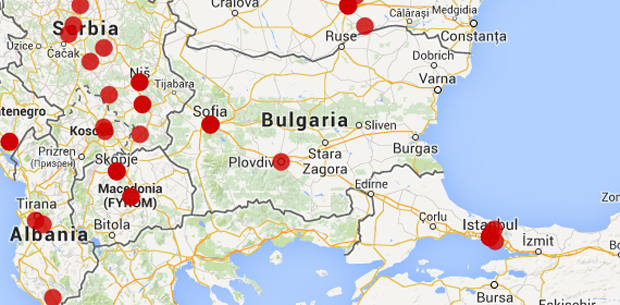
Index on Censorship and Osservatorio Balcani e Caucaso are joining forces to map the state of media freedom in Europe. With your participation, we are mapping the violations, threats and limitations that European media professionals, bloggers and citizen journalists face everyday. We are also collecting feedback on what would support journalists in such situations. Help protect media freedom and democracy by contributing to this crowd-sourcing effort.
Bulgarian journalists covering the financial beat can breathe freely as the most controversial parts of the so-called “bank censorship” amendment to the criminal code have been removed by the legal committee of the national assembly.
In July, parliament adopted the amendment on first reading. The text of the draft outlined sentences of two to five years in prison for circulating “false or misleading information” about banks that could “cause panic”.
The amendment was suggested indirectly by the Bulgarian National Bank (BNB) after a series of bank runs involving Bulgaria’s fourth largest credit institution, the Corporate Commercial Bank (CCB) and later an unrelated run involving financial institution the First Investment Bank (FIB).
It is still unclear who was behind these incidents. The run against CCB was likely caused by disagreements between media tycoon Delyan Peevski, one of the CCB’s large depositors and his old friend, Tsvetan Vasilev, the owner of CCB. Peevski started to remove funds, sparking a bank run which undermined the bank’s liquidity.
In the FIB case, three people have been arrested. They are suspected of spreading rumours about the imminent bankruptcy of FIB via emails and short text messages to the bank’s clients. This stirred mass panic, as people rushed to withdraw their money from the bank: in a few hours, BGN 800 million (£327 million) were withdrawn.
“Society is very sensitive especially to issues that affect the financial and banking stability as the memory of the banking crisis in 1996-1997 is still fresh,” said Petya Stoyanova, a financial and banking journalist from Bulgaria. During that crisis, 14 Bulgarian banks collapsed.
The memory of the mid-1990s financial crisis is the main reason behind the low public confidence in the Bulgarian banking system, which can easily be moved to panic. As a response, BNB proposed an amendment to the criminal code on 1 July stating that those who “disseminate misleading or untrue information on a bank or a financial institution that could create panic among the population, be punished with five to 10 years of imprisonment”.
BNB also proposed a fine ranging between BGN 5,000 and BGN 10,000 (£4,061) to be imposed in such cases. People causing significant damage or those having received significant illegal revenues through the aforementioned activities would be punished the same way.
According to Stoyanova, the proposals have been criticised by politicians and lawyers because of its vague language which, in a broad interpretation, could lead to a conviction for dissemination of any information related to the banking sector, even if it is not false or misleading.
After the first reading of the amendment in parliament, members of the legal committee applied a number of corrections. The revised amendment removes the danger of censorship by tightening up the language, which now refers to disseminating “false” banking information. While the potential fines for those spreading such information were increased, the possibility of prison has been eliminated.
The banking scandals hinted at the dimensions of backstage political machinations in Bulgaria. Stoyanova believes responsibility for malicious behaviour should have a place in future changes to the criminal code. Future lawmakers, she said, should not be allowed to quickly alter laws in violation of rules and best legislative practices, without public discussion.
The second reading of the amendment will be left to the next national assembly, as parliamentary elections will be held on 5 October.
More reports from Bulgaria via mediafreedom.ushahidi.com
Election law amendment could limit press freedom
Attacker sprays substance in Bulgarian sports journalist’s face
Bulgarian journalist beaten by football fans
Newspaper reporters attacked, threatened in Bulgaria’s city of Plovdiv
Arson Attack Against Bulgarian Journalist Genka Shikerova
This article was posted on 13 August 2014 at indexoncensorship.org
12 Aug 14 | Israel, News and features, Palestine, Politics and Society
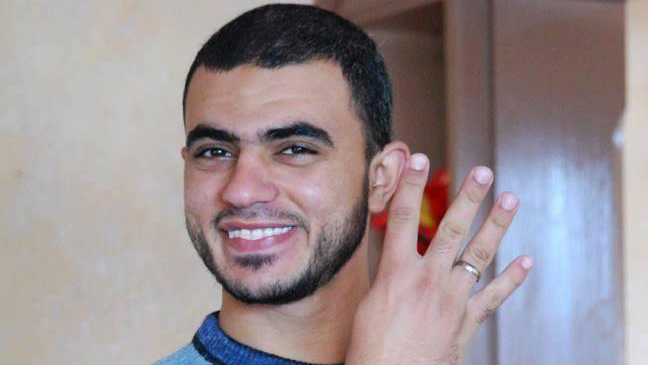
Khaled Hamad was killed while reporting on the Gaza conflict.
News coverage of the ongoing Gaza conflict would be infinitely poorer without local journalists, but it’s clear that international media needs to show their commitment by providing Palestinian reporters and fixers with extra support.
Images of bloodied press vests have become a dark motif of the latest Gaza war. One of the most striking came from 22-year-old photographer Rami Rayan, killed during the shelling of a market in the Shujayah district on the 30 July. The same attack also killed journalist Sameh al-Aryan, aged 26. Before this came the pictures of Khaled Hamed, pulled from the rubble of Shujayah with his broken video camera at his side on the 20 July. In total, 13 Palestinian journalists have been killed in over a month of fighting, according to the International Federation of Journalists.
An earlier statement by the IFJ also listed the names of seven journalists who had been injured when they were struck by shrapnel, with six of these injuries occurring while the journalists were in the field. The seventh was injured when her house was destroyed by an Israeli bombardment.
A journalist’s bullet-proof vest does more than just physically protect the wearer – the “PRESS” marking it is designed to show that they are never a legitimate target. This should stand apart from even the high civilian death toll of this war. Marking oneself as a journalist is to appeal to the so-called “rules of engagement”, that attacking journalists or anywhere where there may be journalists, is a breach of a code that has, until now, lasted since journalists first took to the battlefields to report.
In Gaza, this code has sadly long since worn thin. Hamid Shehab was killed when his parked car was struck by a rocket outside his house on the 9 July. According to the IFJ, his car was “clearly marked as a press vehicle”.
There is no doubt that covering this war has taken its toll on every journalist that has operated in Gaza since fighting began on the 8 July. But sadly, the body count suggests that the dangers for Palestinian media workers covering their homeland in a time of crisis, and those for international journalists who enter to cover the war, are distinctly different. Palestinian media workers include those working for international or local outlets, as well as those working as fixers for international media. The role of a fixer is one that is often overlooked – especially in terms of safety.
In a statement on the 6 August, the Israeli Government Press Office (GPO) stated that they had issued accreditation to 705 journalists from over 42 countries. This is not necessarily the number of journalists who entered Gaza to cover the war, but a GPO card is needed to do so. If even half of this number succeeded to enter and leave Gaza without coming to any harm, they still compare favourably to the numbers of Palestinian media workers who have been harmed.
The Israeli Defense Force (IDF) have taken a certain amount of care to protect international journalists operating on the ground in Gaza, at one point relocating them to two hotels in the strip in order to provide a level of protection during a period of particularly heavy shelling. Although fixers or other Palestinian media workers were free to shelter alongside the international press in the lobby of these hotels, the journey alone may have proved lethal. Add to this that Gazan journalists are unlikely to choose to leave their families at home to suffer heavy shelling while they themselves enjoy this nominal protection.
Even with the IDF awareness of media workers the offices of Al Aqsa TV and Radio, Wattan Radio and the National Media agency were destroyed, and workers at Al Jazeera’s office in Gaza city were forced to evacuate following “warning shots” fired at the building. This occurred days after Al Jazeera was threatened by Israeli Foreign Minister Avigdor Lieberman, who stated at a press conference on 21 July that the foreign ministry was taking steps to investigate the network, with “the intent of not allowing it to broadcast anymore from Israel”.
A tentative ceasefire is currently allowing some respite on the ground in Gaza. But many of the journalists who have left the strip have said that this is not the last war they expect to cover there. Sadly, this is also not the first time that attacks on media outlets have been part of wider attacks on Gaza.
The deaths of Palestinian journalists was also a feature of the 2012 war, when three journalists were killed. One of the most hotly-debated points of this latest bout of destruction has been what constitutes a “legitimate target”. There is one lesson that must stand apart from this discussion: no journalist should ever be included in that category.
The following are statements from fixers and journalists who have been involved in covering Gaza.
In the case of Gaza, nobody is safe. As a fixer I am more exposed to dangers because of continuous movement to the “hot zones”. Last Friday, during the ceasefire, I was 100m away from the front line with the Israeli army in Beit Hanoun. I don’t have equipment for protecting myself like a flak jacket or helmet – my movement from my house to the hotels [where journalists stay] adds more risk. We depend on marking our car with words like TV, hoping that the Israelis will avoid us. What normally privileges foreign journalists over local ones is their financial capabilities.”
— Amjed Tantish is from Beit Lahia, in the north Gaza strip.
Moving around under constant shelling, I wasn’t sure if I would make it back home. I couldn’t get a bulletproof vest, as they are so expensive and I’m a freelancer – I can’t afford it. But also, there is no one who would volunteer to bring one into Gaza from Jerusalem for me. Working without it is risky though. Another danger to Palestinians is that they can be accused of being pro-Israeli. Internationals can come and go, but Palestinians will point fingers at me if I write something they don’t like. I wish that there was an organization that was protecting Palestinian journalists – but as a freelancer, I am responsible for my life. International outlets should take into account that the dangers faced by the local journalists they hire may be quite different – but that should apply to all conflict zones, not just Gaza.”
— Abeer Ayyoub, freelance journalist, Gaza City.
I am usually lucky to find an available flak jacket. Usually I don’t wear protective gear- I would like to buy some, but they are expensive and hard to get during wartime. Instead, I try and assess whether the situation is safe enough to be in, and if it seems too dangerous, I leave. I call ahead to people in the area to see if it’s safe, to find out what the safest route is and to coordinate with people on the ground. For sure, I could get killed. I feel like I could lose everything sometimes. But it’s my work, it’s what I do to get the message out to the world. Some of the people I work with appreciate the work and the risk, but 80 percent don’t care about the risks we take. Most people don’t know about what we do for them. They don’t think about us dying for a picture they sell for $50.”
— Mohammed Rajab, a fixer based in Gaza City.
Danger in this war is everywhere- nowhere is safe. You could survive the hardest hit places, and die in places you think are the safest. I thought that heading to church to do story on displaced families is safe. The next day, it was bombed. Palestinian journalists face different dangers to international journalists – there is a form of discrimination among Gaza-based news agencies. Local staff don’t dare to speak out on this, but if there is a bulletproof car, then international staff have priority to drive it. International journalists are protected by insurance and an affiliation to international and national journalists unions. This gives them protection and insurances if something goes wrong. In Gaza, if a journalist is killed, media outlets cannot care less about their families. Some news agencies know Palestinian journalists well enough in crises, but after the war ends, they dump them. It’s hard for journalists to make themselves indispensible. The outlets I have freelanced for do understand the limitations – but I’ve heard of others that seem to think you could get close enough to danger to hold a rocket in your hands, i.e. get exclusive shots. A friend of mine was injured and his outlet dumped him to find someone new, exactly like you do with car spare parts.”
— Mohammed Omer, a freelance journalist based in Rafah
Israeli forces will open fire on Palestinians, but not internationals. Internationals are just less likely to be shot at – I make sure I wear a bulletproof vest and a helmet, and make sure that I’m clearly marked as press. We need this protective gear. The vest and helmet cost me $1000- and there is no compensation for hazards, even when I work for international media outlets. If you are a Palestinian national that means no insurance either. Foreign journalists at least have the chance of getting their media outlets to cover their life insurance or provide compensation.”
— Yousef Al-Helou, a journalist who covered the two previous wars in Gaza, currently in London
This article was published on August 12, 2014 at indexoncensorship.org
12 Aug 14 | Draw the Line, News and features, Youth Board
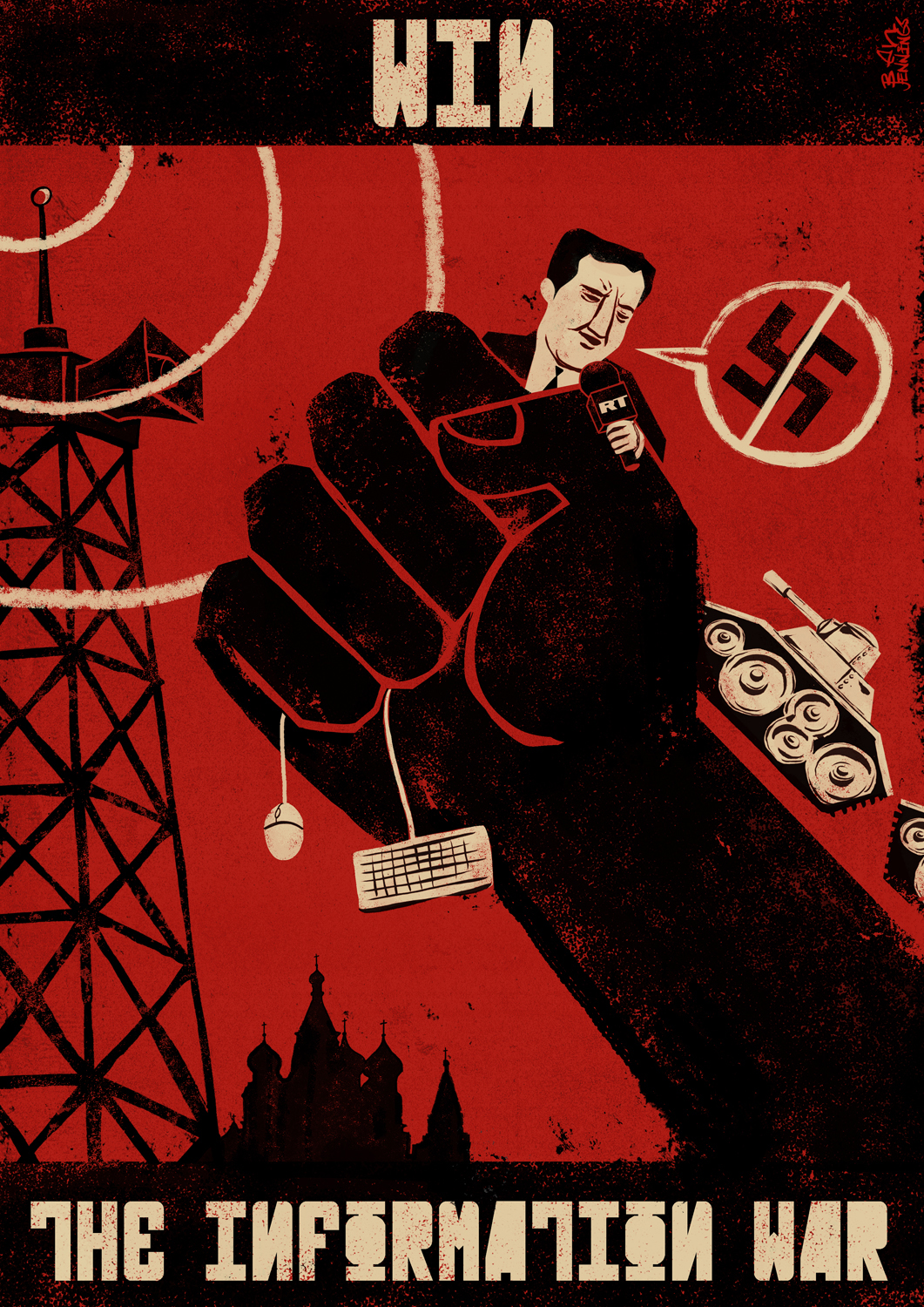
Ben Jennings for Index on Censorship
Draw the Line: We want to hear your thoughts on key free expression issues
Each month, our Youth Advisory Board will choose a free expression topic and encourage readers to respond to the issues it raises via social media. Draw the Line also features pieces from our Young Writers/Artists programme as well as relevant features from our award-winning quarterly magazine.
This month’s question: Do wars justify censorship?
The British government established the War Office Press Bureau 100 years ago this month to censor reports from the British Army before they were issued to the press. Colonel Ernest Swinton, the first man to be appointed the Army’s official journalist, wrote later: “The principle which guided me in my work was above all to avoid helping the enemy… I essayed to tell as much of the truth as was compatible with safety, to guard against depression and pessimism, and to check unjustified optimism which might lead to a relaxation of effort.”
During the First World War, censorship was deemed crucial to send the public the right messages, and keep the enemy in the dark about tactics.
Today, especially in times of war, governments continue with their attempts to control what the public and the outside world are told, often in the name of national security.
Amid the conflict in Israel and Gaza, both sides have been guilty of clamping down on free speech and the press.
Israel last month conducted three air strikes on buildings housing media outlets in Gaza, injuring at least three journalists and, according to the Committee to Protect Journalists, violating international law.
On the Palestinian side, Hamas expelled Russia Today journalist Harry Fear after he referred to the location of rockets fired towards Israel on Twitter, and a university lecturer was arrested for criticising Palestinian president Mahmoud Abbas on Facebook.
As the internet provides a platform for everyone to publish information that might aid the enemy, reporting restrictions that were once limited to the work of journalists extend into the personal lives of us all.
In times of war, can censorship be justified in the name of keeping us safe? Or is national security simply an excuse used by governments to clamp down on their critics?
Participate in the discussion by tweeting your thoughts with the hashtag #indexdrawtheline and follow responses at Draw the Line.
08 Aug 14 | Azerbaijan, Azerbaijan News, Europe and Central Asia, News and features
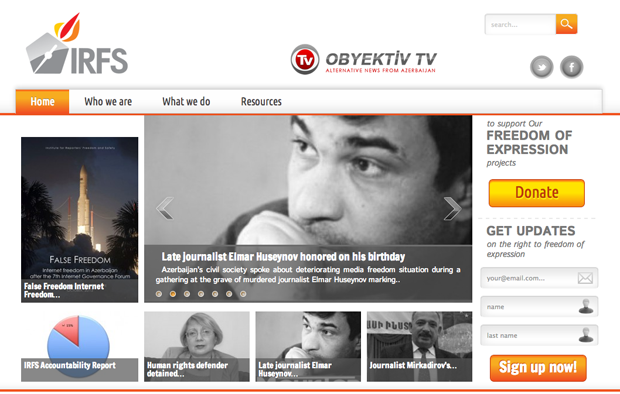
(Image: IRFS)
The offices of Azerbaijani press freedom organisation Institute for Reporters’ Freedom and Safety (IRFS) were on Friday searched by police – the latest in a new clampdown by authorities on human rights groups in Azerbaijan. Human rights lawyer Intigam Aliyev also had his home searched, and has been sentenced to three months pretrial detention.
The IRSF offices were today surrounded by police officers according to reports from Azerbaijan. There are unconfirmed reports that Emin Huseynov, the head of the organisation, has been detained. He was already under a travel ban.
Over the past two weeks, human right defenders Leyla and Arif Yunus and Rasul Jafarov have been sentenced to three months of pretrial detention, facing charges including high treason, state betrayal and tax evasion. One of the country’s few remaining independent newspapers, Index Award winner Azadliq, has been forced to suspend publication due to financial troubles.
IRFS has been reporting on these and other instances of apparent state targeting of opposition voices. The NGO was founded in 2006, “in response to growing government restrictions on freedom of expression and freedom of press,” according to their mission statement. The latest global press freedom index from Reporters Without Borders ranks Azerbaijan at 160 out of 180 countries, and the recent estimates puts the number of political prisoners in the country at over 140.
The recent cases have taken place against a backdrop of heightening tensions between Azerbaijan and neighbouring Armenia, which so far has left at least 14 people dead. President Aliyev on Thursday published a series of tweets on his personal Twitter account which seemed to threaten war with Armenia. The troubled relationship between the two countries has also played a part in cases against dissidents, including Leyla Yunus who has been accused of spying for Armenia.
In May, Azerbaijan assumed chairmanship of the Council of Europe’s (COE) Committee of Ministers, whose tasks include “ensure[ing] that member states comply with the judgments and certain decisions of the European Court of Human Rights”.
In a statement on Friday, the COE said Secretary General Thorbjørn Jagland has “revealed his deep concern at the arrest of Azerbaijan human rights defender Leyla Yunus and the prosecution case against her husband Arif”.
“By stifling dissent, Azerbaijan is failing to comply with its international obligations which require safeguarding freedom of expression, assembly and association. It is necessary that Azerbaijan reverse the situation,” COE Commissioner for Human Rights Nils Muiznieks has told Azerbaijani media.
Index on Censorship, along with 60 other NGOs, has called for the immediate and unconditional release of Leyla and Arif Yunus and Rasul Jafarov. Today Index reiterates this call and raised its concerns with Britain’s Foreign and Commonwealth Office.
“It is deeply worrying that while international attention is directed at conflicts elsewhere, Azerbaijan appears to be resuming oppression of dissent,” said Jodie Ginsberg, CEO of Index on Censorship. “This is a country showing blatant disregard for human rights while presiding over an institution that describes itself as the continent’s ‘leading human rights organisation.’ The fellow members of the Council of Europe must do more to show Azerbaijan its actions must cease immediately.”
This article was published on August 7, 2014 at indexoncensorship.org
08 Aug 14 | Draw the Line, Young Writers / Artists Programme
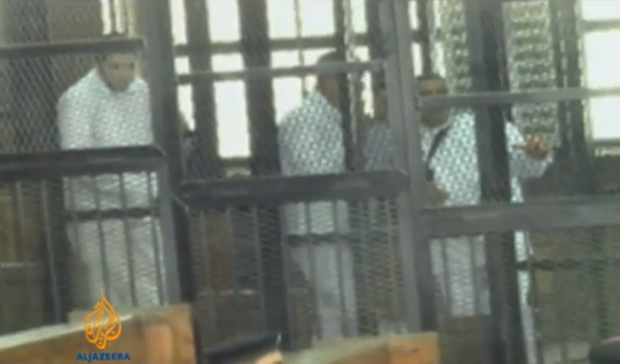
(Image: Al Jazeera English/YouTube)
Egypt’s recently sentenced three Al Jazeera journalists to seven years in prison under the country’s anti-terrorism laws. Others, tried in absentia, were given ten years. In light of this, the Index Youth Board this month asked Index’s younger readership to consider the question: When does giving a platform to extremist views through art or journalism become an act of terrorism? And should artists or journalists be exempt from terrorism laws, or should inflammatory works be banned?
Some readers expressed concern over how certain authorities might use the term “terrorism” too liberally, or even corruptly. A number of recent articles have questioned whether or not the UK’s legal definition of terrorism is too wide and threatens to criminalise us all; the board’s own Morgan Meaker wrote that “Branding artists as terrorists doesn’t silence them, it only proves their relevance.”
Index brought together young people to discuss the issue in two workshops, one in the organisation’s offices and one at the youth arts centre Platform in Islington. Both events sparked many new opinions and questions. Some pointed out the difficulty in defining works of art and journalism, while others debated whether or not anything that is trying to manipulate people’s thoughts can be considered an act of terrorism.
On the #IndexDrawtheLine Twitter feed the responses varied greatly, with some readers putting emphasis on the intentions behind the works in question, whilst others claimed that all art and journalism is politically loaded. What seems to be agreed on, however, is the issue of the viewer’s perspective. @lightielikeefua pointed out that a work of art or journalism can be misinterpreted as an act of terrorism if the government or the public doesn’t like or understand it; as @sboy9700 wrote, “One’s freedom fighter is another’s terrorist.”
Explore the responses to this month’s question on Draw the Line.
07 Aug 14 | Europe and Central Asia, News and features, Turkey

Turkish Prime Minister Recep Tayyip Erdogan (Photo: Philip Janek / Demotix)
Shortly before campaigning for Turkey’s upcoming presidential election was officially set to begin, the director of public broadcaster TRT threatened to cut coverage of candidate Selahattin Demirtas. The reason? Demirtas had publicly criticised TRT for bias towards one of the three men in the running — outgoing Prime Minister Recep Tayyip Erdogan.
The case, reported by Index on Censorship’s media freedom mapping tool, is just one example of the challenges facing free expression in Turkey on eve of a vote that could alter its political system. When Turks go to the polls on Sunday, it will be in the country’s first direct presidential election. The consensus is that Erdogan will beat his opponents — Dermitas from the left wing People’s Democratic Party and Ekmeleddin Ihsanoglu, representing the centre-left Republican People’s Party and the far-right Nationalist Movement Party — comfortably; some predict after just one round. But what makes this election even more significant, is Erdogan’s declared intention to transform the presidency from a largely ceremonial role to a powerful office based on the US model. This would effectively allow him to remain in power despite being barred from re-election as prime minister by term limits.
Concerns have been raised about the impact of the state of free expression in Turkey on the election. The Organisation for Security and Cooperation in Europe (OSCE), in its capacity as an election observer, recently stated that “direct interference of media owners and political actors into editorial freedom results in a lack of independent and investigative journalism and leads to limited criticism towards the ruling party and the prime minister”. The interim report from its election observation mission published on 31 July, also highlighted shortcomings in the legal framework around impartiality of media coverage and the the country’s restrictive internet legislation.
This is at least in part backed up by Demirtas’ claims. According to research from Turkey’s broadcasting regulator, between 4 and 6 July, TRT gave 533 minutes worth of coverage to Erdogan, compared to 3.24 seconds for Ihsanoglu and 45 seconds to Demirtas. Erdogan has also been accused of blurring the lines between his role as prime minister and presidential candidate, and using resources and platforms exclusively available to him to rally support. The campaigns of Erdogan’s opponents “have been active, but with limited visibility”, as the OSCE put it.
Other recent media freedom cases go beyond questions of impartiality. Released just days before the election, a report by Bianet, a Turkish news site that monitors attacks on press freedom, showed that assaults on journalists is on the rise. As covered by Index, the research found that between April and June, there had been 54 attacks on journalists — between January and March, the figure was “at least” 40. The report also noted that 133 fines were handed out to various TV and radio institutions and continued impunity around attacks on the media. This follows the pattern of Turkey’s global press freedom ranking, which has deteriorated over the past years.
Internet freedom has also been dealt some blows in the lead-up to the election. The latest Twitter transparency report, published last week, showed that Turkey has submitted the highest number of content removal requests in the past six months — despite the fact that Twitter was banned in Turkey for two weeks in March and April. The social media platform has been used by many of the country’s 36 million internet users to have their say on political matters, most notably during last summer’s Gezi park protests — a topic Turkish playwright Meltem Arikan has written about extensively for Index.
More recently, Turkish social media was flooded with photos of grinning women, in protest at Deputy Prime Minister Bulent Arinc declaring that women shouldn’t laugh out loud in public. While the bans on Twitter and later also YouTube were short-lived, authorities continue to keep close tabs on the internet. Twitter user @fuatavni, who has almost one million followers, was blocked in Turkey after criticising the government. Earlier in July, Erdogan filed a legal complaint against the editor of Today’s Zaman, Bulent Kenes, over what he claimed were insulting tweets. This comes in the wake of controversial legislation passed in February, which gives the government wide-reaching powers in regulating the internet.
More about Turkey from mediafreedom.ushahidi.com:
Newspaper Agos, film director threatened on Twitter
News crew told to leave public event attended by minister
Greek daily newspaper in Istanbul closes
Broadcaster threatens to stop covering presidential candidate
Prime Minister files legal complainst against newspaper editor
This article was published on August 7, 2014 at indexoncensorship.org
07 Aug 14 | Draw the Line, Events, Youth Board
For July’s Draw the Line event, Index hosted a workshop in our offices to debate the question, “Can art or journalism ever be terrorism?” This daunting question provoked some interesting answers, delving deeper into the subject matter the group began to question how do we define art, journalism and terrorism? What do we expect the role of artists or journalists to be in society? And who decides this?
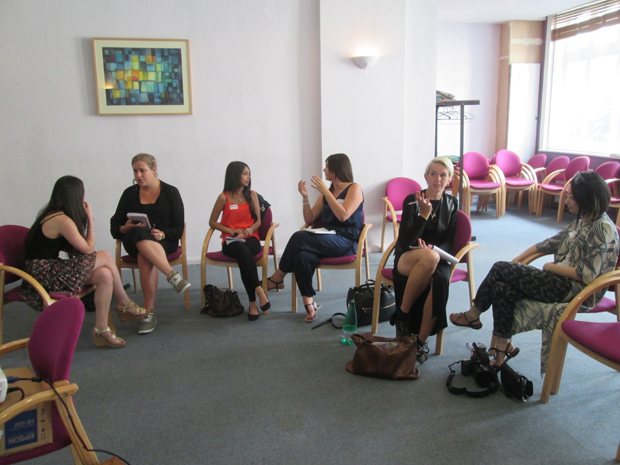
Looking at both sides of the argument we presented the group with several different situations where artists or journalists had been censored and invited them to take part in a role-playing exercise where they had a go at playing both the person being censored and then subsequently the censor.
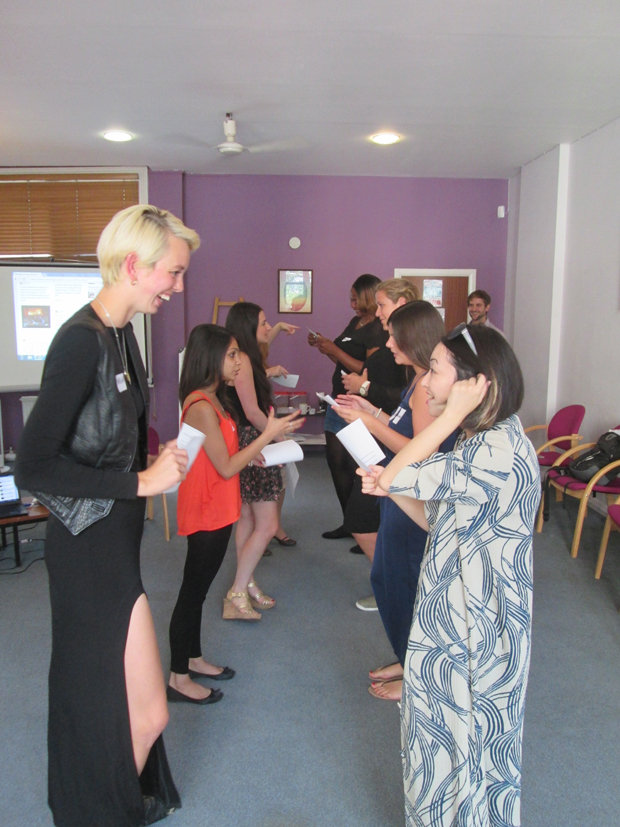
By playing out these situations from either side of the debate, the group found that it became more and more difficult to say who was definitively right and wrong in each of these situations? Who had the more legitimate right to express themselves? We all agreed the bottom line, of course, should lie in the guarantee of basic human rights for all sides – perhaps as laid out in Article 10 of the Human Rights Act, Article 19 of the UN’s Universal Declaration of Human Rights or America’s First Amendment.
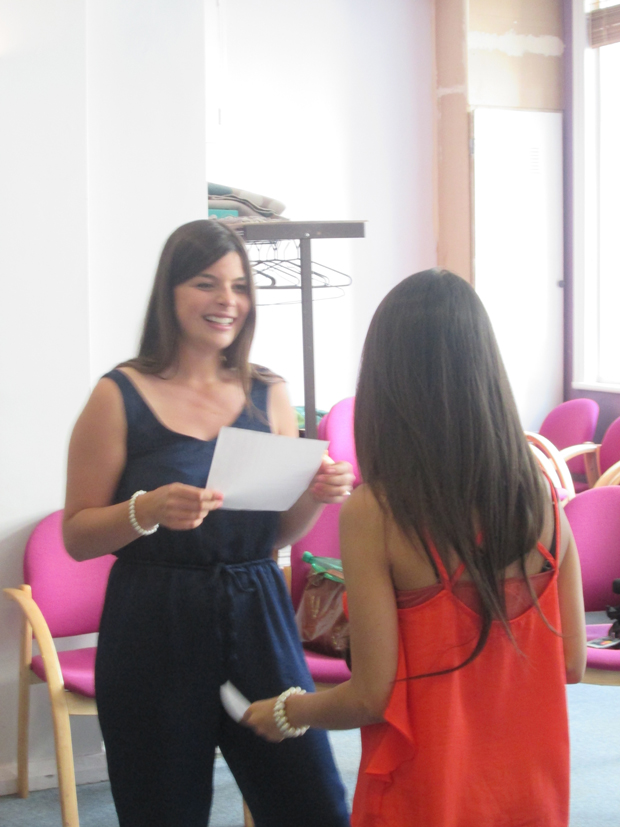
These discussions all finally lad into a formal debate with two teams arguing for and against the statement ”This house believes that art and journalism can be terrorism’.
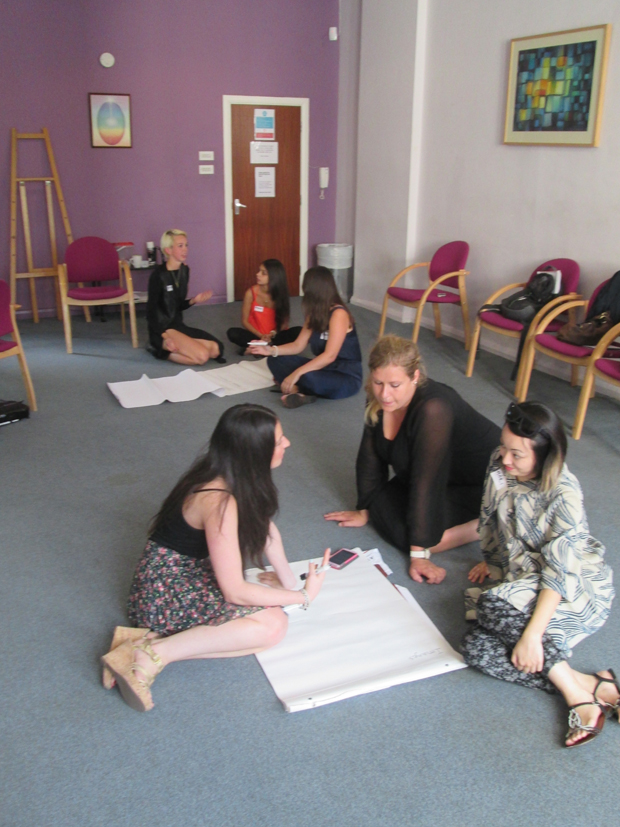
There was in the end no clear answer, but all of the group came away with many more questions of their own. As one participant said “there’s no black and white answer as I’d previously assumed”. All agreed that a wider debate was needed on the role art and journalism play in society, as well as more information on how that can and does differ all over the world.
Keep up with the debate on Draw the Line here and keep an eye out for our next event where we will be facing a new question and asking where do you draw the line on free speech?
07 Aug 14 | News and features, Politics and Society, Religion and Culture
First, the inevitable throat clearing and hand wringing. The most recent conflict between Israel and Hamas has been beyond horrendous. As I type, the ceasefire is holding. Over 1,800 Palestinians have lost their lives, more than 300 of them children. Dozens of Israelis, mostly young conscript soldiers, are also dead. There is an enormous imbalance, in firepower and in defensive capability. Better men than I have gone mad attempting to imagine a way to stop this happening again. Even that statement, I realise, reads like a cop out, but a particular sense of despair looms over this latest manifestation of a war that is only ever dormant at best.
Some clearly feel that the horror has gone too far. Author Hari Kunzru, for example, has decided to join calls for a cultural boycott of Israel. Writing on his Facebook wall, Kunzru cited an op-ed in the Jerusalem Post which suggested the “dismantling” of Gaza and the “relocation” of its non-humanitarian population. Kunzru also cited “”the targeting of schools and hospitals, the picture of a child my son’s age being dug out of rubble that reduced me to helpless tears, the total disregard of the Netanyahu government for international laws and norms…” as signs that Israel was a country that had “lost its moral compass”.
This is notable not because Hari is a well-known figure in the arts world – there are enough of those willing to sign up to any cause that comes along, and more than enough already willing to tell us exactly what they think about Israel/Palestine, or Cuba, or any other issue to which sections of the left are drawn to, like particularly verbose moths to the flames of revolution, or, worse, the great unspecified “resistance”.
No, this is notable exactly because Hari Kunzru is not one of those people. Hari is thoughtful and unshowy. And Hari has actually put in real work for free speech. I recall, in 2012, scrabbling to find a local sympathetic lawyer who would represent Hari when he faced serious risk of prosecution for reading from the Satanic Verses at the Jaipur Literary Festival, in solidarity with Salman Rushdie. He has made himself available for organisations such as Index and English PEN well beyond the call of duty. So when someone such as Hari Kunzru identifies with a cultural boycott, it means we have to take the question seriously.
The concept of boycotts, and particularly cultural and academic boycotts, have for a long time been problematic for people engaged in the promotion of free expression. Most criticisms of censorship are based on a fundamental assumption that communication of ideas is, in and of itself, a good thing. Some vague belief abounds based loosely on the Hegelian triad of thesis, antithesis, synthesis.
This can sometimes sound naive, but it does lead to useful perspectives on any argument: 1) that there are entirely sincere, well-meaning people, who may hold views completely anathema to your own, and 2) following from that, in formulating any position on proscription of certain attitudes or beliefs, or people, one must imagine being on the wrong end of the argument – a kind of categorical imperative crossed with the “golden rule”, that can end up making the certainty of others unsettling.
Boycotters often carry that absolutism and conviction that brooks no argument: a simple righteousness anchored in the belief that their view of the world is so self-evidently correct that anyone who is unconvinced by them is either deviant or deficient.
Then there is always the question of who benefits from boycotts? And who is hurt? The traditional, free expression view on cultural boycotts is that they punish precisely the people who are most outward looking and also most likely to seek change in their own countries. Is it fair to punish the artists for the actions of the government, as we have seen with the cancellation of Israeli show The City at the Edinburgh Festival following protests by the Scottish Palestine Solidarity Campaign? Or to request that the UK Jewish Film Festival should ditch Israeli government funding before it can use a venue, as Kliburn’s Tricycle Theatre has, in the name, it says, of attempting to depoliticise the event?
It is argued that theatre companies, dance troupes etc are legitimate targets for boycott if they benefit from state funding, but in truth, there is hardly a theatre company in the civilised world that does not take funding from government agencies: indeed, most western liberals see state agency funding of arts as a sign, even a crucial part, of a healthy democracy, and it is rare that state-funded companies engage in Red-Army Choir style propaganda tours – though Venezuela’s Orquesta Sinfónica Simón Bolívar, decked out in baseball jackets in the colours of the national flag, can sometimes feel a little too Potemkin for comfort.
Writing on the subject (£) of anti-Israel boycotts back in 2012, Irish Times literary editor Fintan O’Toole drafted these five rules for artists and writers invited to perform in countries with dubious records:
1) Don’t take money, directly or indirectly, from governments that systematically abuse human rights, or from oligarchs who benefit from those abuses.
2) Give a significant part of your fee to human-rights defenders or oppressed artists in the relevant country.
3) Don’t accept any restrictions on your own freedom of expression when you’re in that country.
4) Don’t perform to audiences forcibly segregated on lines of race, gender or ethnicity.
5) Don’t let yourself be used for propaganda purposes.
This was very much the approach used by Sweden’s Loreen during and after the Eurovision Song Contest hosted by Azerbaijan in 2012. The singer made efforts to meet opposition figures and voice their concerns in press conferences and TV interviews, and was widely praised for it.
In fact, O’Toole’s rules are not a million miles from the boycott pledge signed by Hari Kunzru, which states: “We support the Palestinian struggle for freedom, justice and equality. In response to the call from Palestinian artists and cultural workers for a cultural boycott of Israel, we pledge to accept neither professional invitations to Israel, nor funding from any institution linked to its government until it complies with international law and universal principles of human rights.”, though there is a crucial difference in that the boycott statement punishes both state and non-state entities, thus preventing signatories from accepting invitations from, say, a hypothetical human rights group.
And this is the problem I will continue to have with boycotts against nations, particularly nations’ cultural endeavours. They seem too blunt, too broad and flawed. Even the much-cited cultural boycott against South African apartheid went awry, with the bizarre irony of Paul Simon being criticised for technically breaking the boycott by travelling to the country to work with Ladysmith Black Mambazo, the black acapella singing group that was far from a friend of the regime.
But the problem is that for many seeking to register their disgust at the actions of foreign governments, boycott seems the only option. Perhaps it’s time for those of us uncomfortable with the idea of shutting down free speech to figure out new avenues of expression.
This column was posted on August 7, 2014 at indexoncensorship.org















